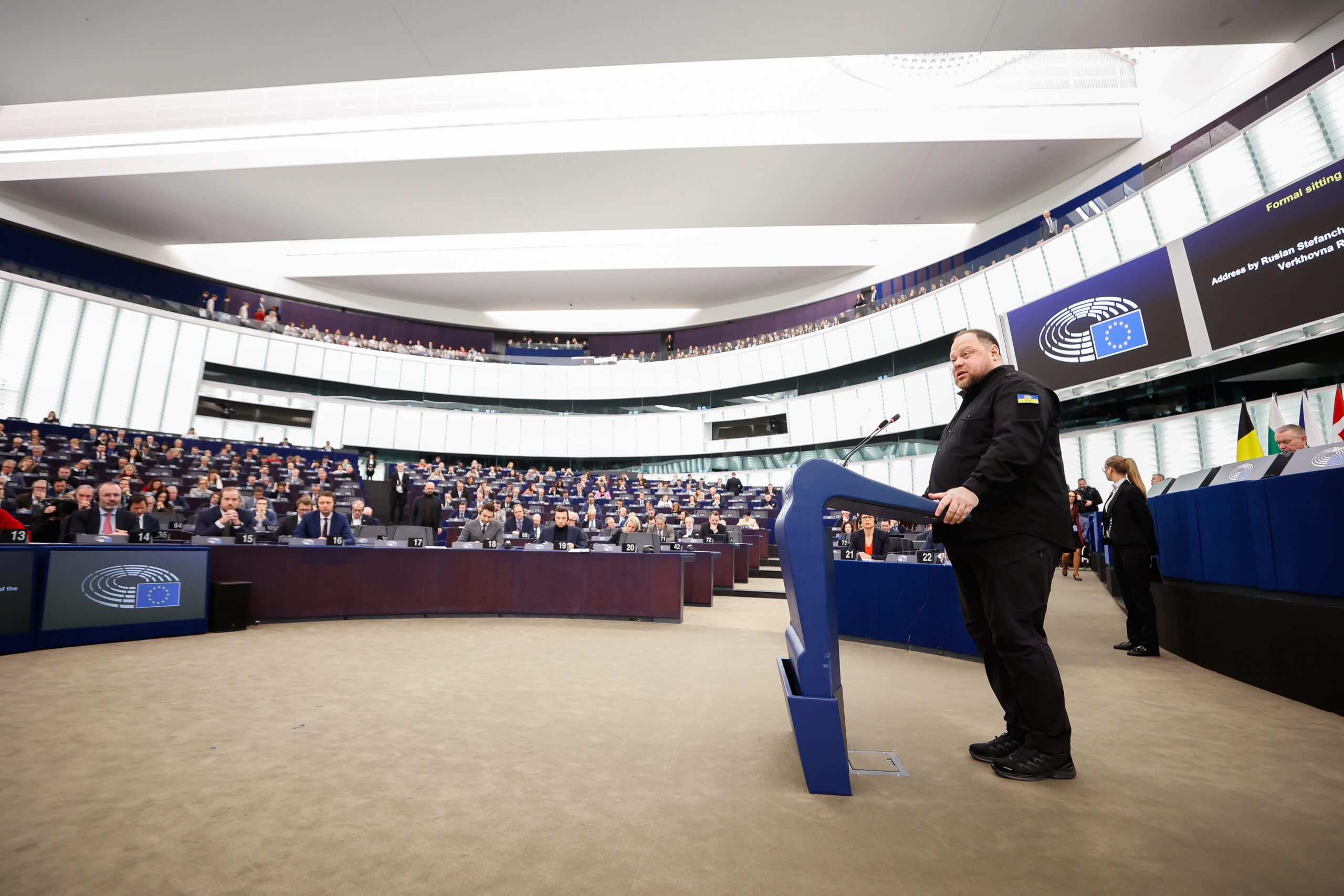From the correspondent in Strasbourg – Three years after the start of Russia’s large-scale invasion of Ukraine, Donald Trump’s inauguration in the White House pushes Kyiv toward negotiations with Moscow. However, the new president knows neither the principle of “Nothing on Ukraine without Ukraine” nor the formula of unconditional support for Kyiv without receiving anything in return. From the European Parliament, the EU, which is in danger of being cut off, tries to raise its voice: Roberta Metsola and her Ukrainian counterpart, Ruslan Stefanchuk, jointly reaffirmed their commitment to a “just peace.”
The chairman of the Verkhovna Rada spoke at the chamber in Strasbourg, as he did in June 2022, shortly after the start of Ukraine’s path to EU membership. Introducing him, Metsola warned Europe, “We must not let go of what we mean by peace.” To arrive at a peace that is not a surrender to the aggressor, “Ukraine must be in a position of strength.” If Washington questions its commitment, “Europe must do more.” In terms of financial, military, and humanitarian support. In terms of diplomatic pressure.

The moment is decisive, “crucial,” as Stefanchuk himself pointed out. And Volodymir Zelensky’s army comes to it “tired but undefeated.” The Ukrainian parliament speaker thanked the EU Parliament for its never-failing support over the past three years, reiterated a month after the European elections by the new MEPs in a July 17 resolution. Then, in September, the same EU Parliament asked to remove the limitations on the use of Western weapons in Russian territory. The European Parliament’s firmness was instrumental in ensuring temporary protection in European countries for more than 4 million displaced Ukrainians, the mobilisation of €50 billion in military assistance, and training by member countries of more than 70,000 soldiers in the Kyiv army.
But if Moscow continues to point toward Kyiv, “it means it also intends to move toward Warsaw, Strasbourg, Brussels,” Stefanchuk warned. And in light of the provocations and blackmail by Trump, who just today said that “one day Ukraine could be Russian” and asked Zelensky that the U.S. commitment be repaid with “the equivalent of 500 billion worth of rare earths,” the EU is called upon to raise the level of its responsibility to the Ukrainian people yet again, by accelerating on the accession path of Kyiv to the 27—accession negotiations could begin as early as March—and by assuring it of the guarantees necessary for a lasting peace with the Kremlin.
It’s not just a matter of strengthening Kyiv’s air defences and increasing the supply of weapons and long-range missiles—Stefanchuk thanked France for the delivery of the Mirage fighters because “we need more air defences to protect our skies because it is from the sky that Russia attacks us”—but to insist on “a clear path” towards Ukraine’s entry into NATO, “the best guarantee of security” for the country. According to Stefanchuk, the Ukrainian army is “in fact already a NATO army”. Ukrainian soldiers fight with NATO weapons and techniques and “defend NATO’s eastern front from NATO’s enemy: Russia.”
The harshness of the situation on the ground forces the speaker of the Verkhovna Rada to remain, at least, optimistic. “In these three years, we have transformed categorical noes into solid yeses. We said no to weapons, no to long-range missiles, no to aeroplanes, and now they have all become yeses,>” he emphasised. While the yeses of the United States are in the balance, those of Brussels are more fundamental than ever.
English version by the Translation Service of Withub






